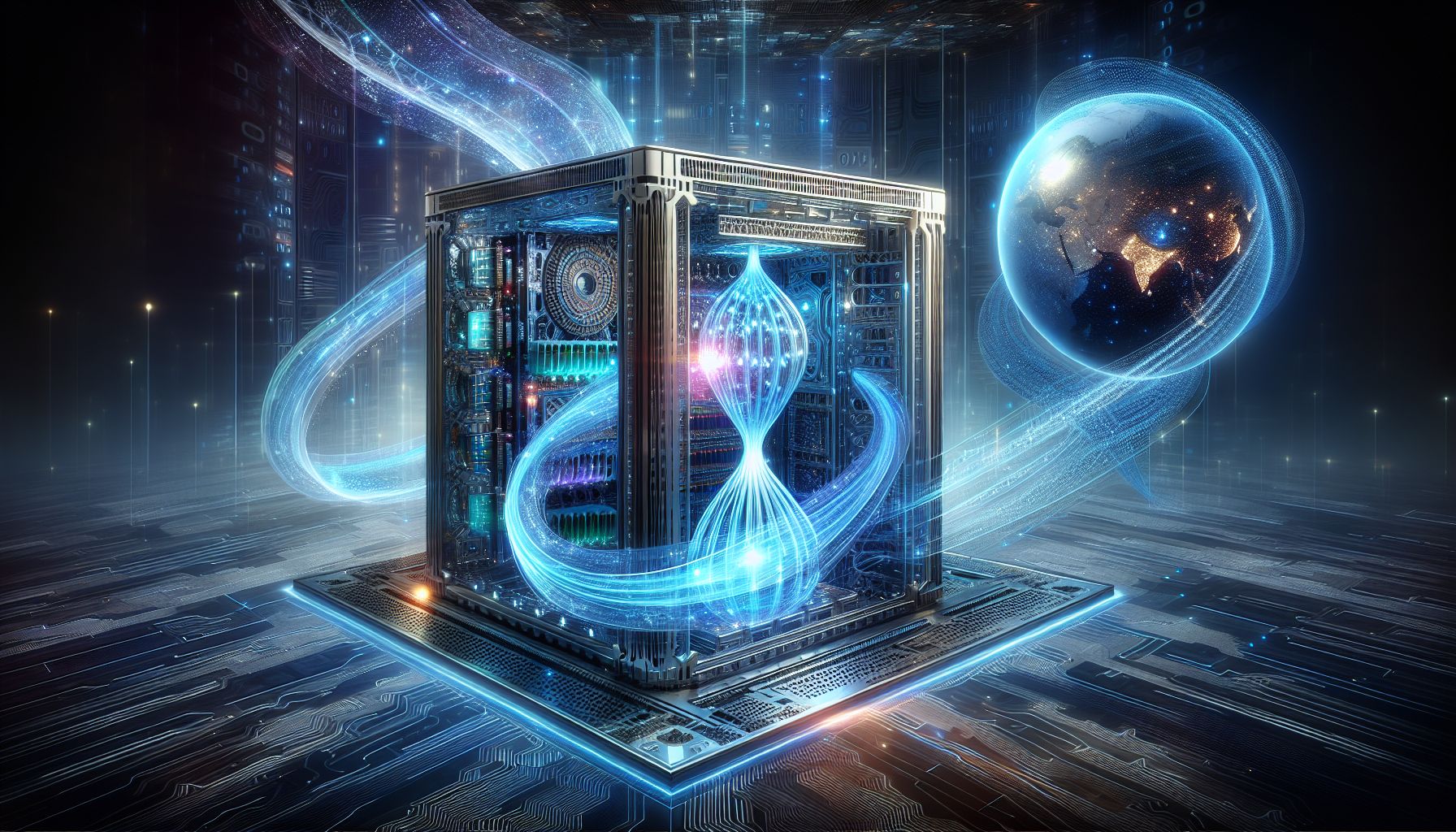📌 Let’s explore the topic in depth and see what insights we can uncover.
⚡ “Imagine a computer that could simulate the universe, decode the most complex algorithms, and solve problems that traditional computers couldn’t solve in a million years. Welcome to the exciting, mind-boggling world of quantum computing.”
Imagine a computer so powerful that it could process more data at once than every conventional computer in existence combined. A machine that could solve complex problems in seconds, problems that would take today’s most powerful supercomputers thousands of years to crack. 🔍 Interestingly, not a pipe dream or a page out of a science fiction novel. 🔍 Interestingly, quantum computing, and it is rapidly shifting from the realm of theoretical physics into the practical world of computer science. In this post, we will decode the complex world of quantum computing, shedding light on what it is, how it works, and why it represents the next era of processing power. Whether you’re a seasoned tech enthusiast or a curious layman, this comprehensive guide will help you understand this cutting-edge technology that is set to revolutionize our world.
🌀 Quantum Computing: A Simplified Introduction

"Unveiling the Quantum Computing Revolution: Power Unleashed"
Quantum computing is a new kind of computing technology that leverages the principles of quantum mechanics to process information. Unlike classical computers that use bits (0s and 1s) to process information, quantum computers use quantum bits, or qubits. 🧩 As for Qubits, they’re different from traditional bits in a crucial way. While a classical bit can be either a 0 or a 1, a qubit can be both 0 and 1 at the same time, thanks to a quantum property known as superposition. This means that a quantum computer can process a vast amount of data simultaneously, making it exponentially more powerful than a classical computer.
✨ The Magic of Quantum Mechanics
Quantum mechanics is a branch of physics that describes the behavior of particles at the smallest scales. 📌 In fact, a world of weird and wonderful phenomena that defy our everyday intuition. Two key quantum properties that quantum computers exploit are superposition and entanglement. As mentioned earlier, superposition allows a qubit to be in multiple states at once. Picture a spinning coin. While it’s spinning, it’s not just heads or tails but in a superposition of states. Only when it lands (when we measure it), it becomes one or the other. Entanglement, on the other hand, is a phenomenon where two qubits become linked, such that the state of one instantly influences the state of the other, no matter how far apart they are. It’s like having two magic dice: you roll one here in New York, and the other in London instantly shows the same face!
These properties provide quantum computers with their incredible processing power and speed.
💻 Quantum Computers in Action
From drug discovery to climate modeling, quantum computers hold immense potential across various fields. Let’s explore some of these applications:
Cryptography
With their ability to factor large numbers quickly, quantum computers could crack many of the encryption algorithms that protect our data today. On the flip side, they could also give rise to new, more secure encryption techniques.
Drug Discovery
Quantum computers could simulate complex molecular structures, speeding up the discovery of new pharmaceutical drugs.
Climate Modeling
They could also help us model complex climate patterns, providing valuable insights for tackling climate change.
Artificial Intelligence
Quantum computers could significantly accelerate machine learning algorithms, opening new frontiers in artificial intelligence. It’s important to note, however, that practical, large-scale quantum computers are still a work in progress. We’re still in the early stages of this quantum revolution.
🔐 Quantum Computing: The Challenges Ahead
Quantum computing is not without its challenges. Here are some of the key hurdles:
Physical Constraints
Building a quantum computer is a daunting task. Qubits need to be isolated from their environment to maintain their quantum state. This requires extremely low temperatures and high vacuum conditions.
Error Correction
Quantum systems are prone to errors due to their delicate nature. Developing efficient error correction methods is a significant challenge.
Software Development
We also need to develop new algorithms and software to fully exploit the power of quantum computing.
Despite these challenges, progress in quantum computing is accelerating, with tech giants like Google, IBM, and Microsoft investing heavily in research and development.
🧭 Conclusion
Quantum computing is a fascinating and complex field that promises to revolutionize the way we process information. While it is still in its infancy, the potential applications of quantum technology are vast and exciting, from cryptography to drug discovery. Despite the challenges that lie ahead, the quantum revolution is well underway. As we continue to unravel the mysteries of the quantum world, we stand on the brink of a new era of processing power. In the words of theoretical physicist Richard Feynman, “Nature isn’t classical, dammit, and if you want to make a simulation of nature, you’d better make it quantum mechanical.” And that’s what we’re doing with quantum computing — we’re building machines that can tap into the natural world’s quantum nature, and the possibilities are as boundless as the universe itself.
So, buckle up and get ready for a quantum leap into the future of computing! 🚀
🤖 Stay tuned as we decode the future of innovation!
